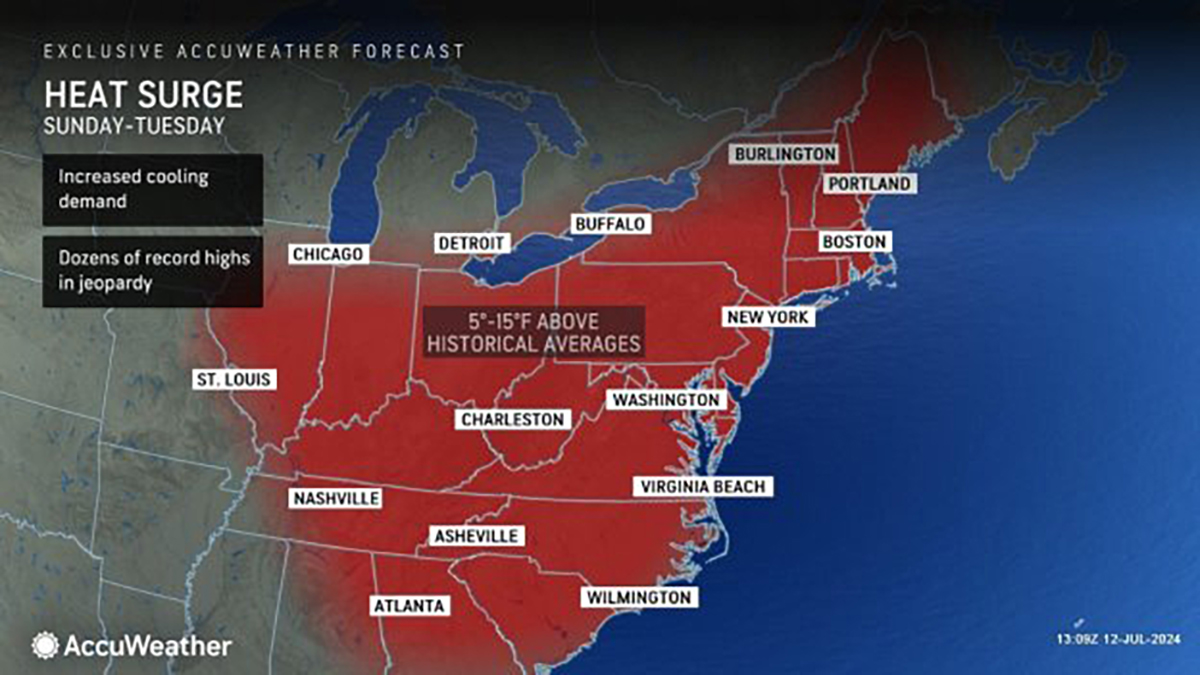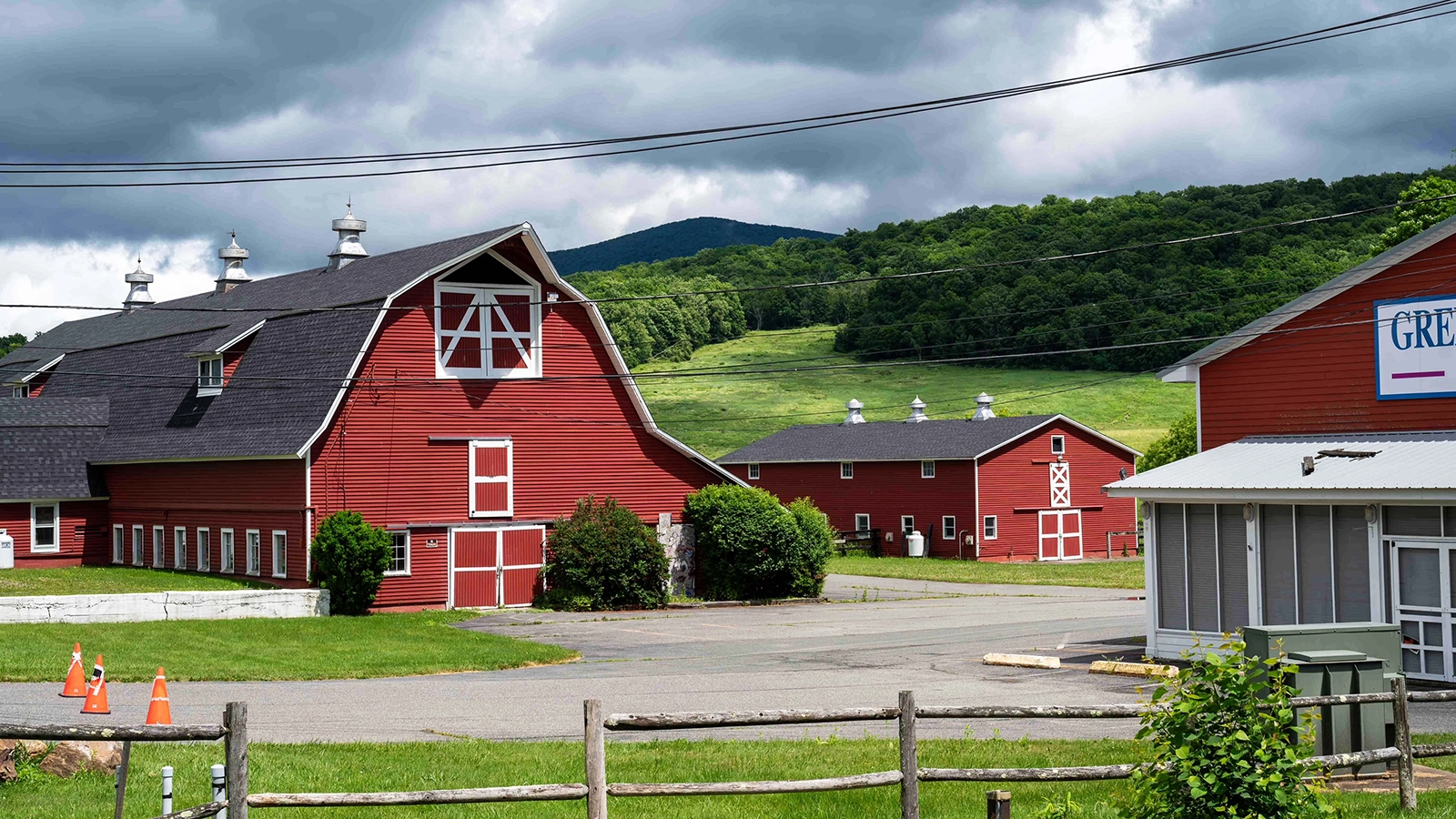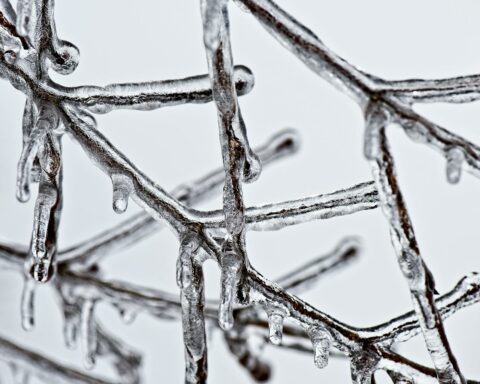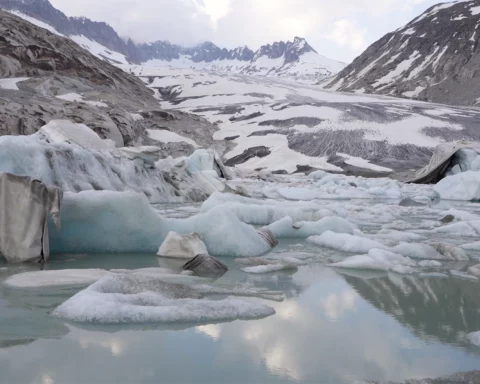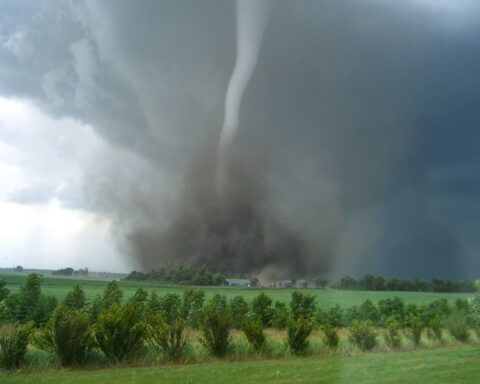Editor’s Note: This article provided by AccuWeather.
AccuWeather Global Weather Center – July, 12, 2024 – A powerful heat dome that is baking cities across the western U.S. is expected to slowly expand to the east this weekend, bringing scorching temperatures to millions of Americans along the East Coast.
Expanding Heat Dome
AccuWeather Lead Long Range Expert Paul Pastelok says temperatures will soar 5-15 degrees above the historical average across more than 20 states from Sunday through Tuesday.
Temperatures will reach 90 degrees or higher for nearly 245 million people across America on Sunday. An estimated 30 million of those people will see temperatures hit the 100 degree mark or higher on Sunday in parts of the West and the Plains.
Summer Swelter
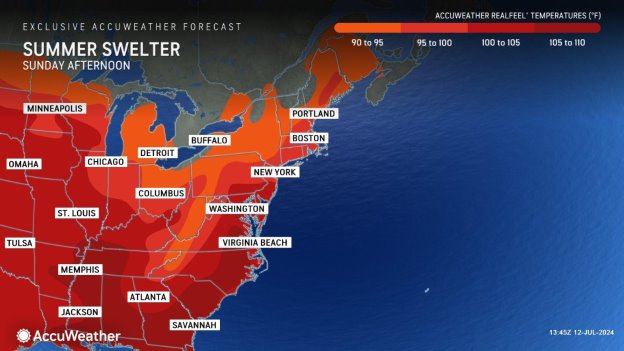
“A dominant area of high pressure is to blame for the relentless heat in the western U.S. and Pacific Northwest. This heat will expand into the central U.S.,” said Pastelok. “Scorching summer temperatures will be on the rise from the Southeast to much of the mid-Atlantic and even parts of the Northeast through early next week. We expect more records to be shattered.”
Utilities and power grid operators in the Northeast and mid-Atlantic could see a spike in power demand starting this weekend, to keep up with more air conditioners, fans, and cooling equipment running around the clock.
Dangerously Hot Conditions
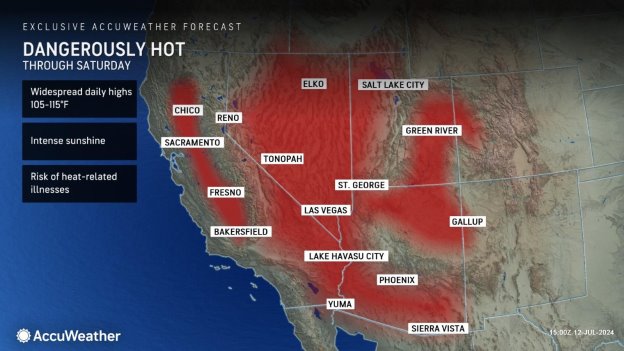
Heat and high humidity are typical in many parts of the United States in mid-July, but AccuWeather expert meteorologists say the combination of temperatures well above the historical average, intense sunshine, and very light winds will create uncomfortable and potentially dangerous conditions for people and pets that do not have access to air conditioning, fans, or cooler shaded areas.
“In Charlotte and Raleigh, North Carolina, daily record high temperatures dating back to the 1800s will be challenged on multiple days in the coming week as afternoon temperatures hover near the 100-degree mark,” said AccuWeather Senior Meteorologist Reneé Duff.
Other cities, including Roanoke, Virginia, Baltimore, and Washington, D.C., will see high temperatures hovering around 100 degrees as well, which could rival temperatures reported during the blistering summer heat wave of 1988.
Beyond Sultry
“Early next week, AccuWeather RealFeel ® Temperatures are projected to surge to 100-105 degrees across the mid-Atlantic region, with some locations creeping above the 105-degree mark,” said AccuWeather Meteorologist Alyssa Glenny.
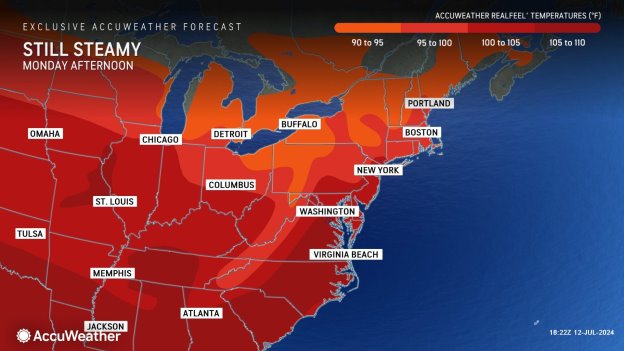
Farther north, temperatures are expected to climb above 90 degrees next week in Philadelphia, Pittsburgh, New York City, and even Boston.
Relief from the Heat
Pastelok said a cold front will provide a break from the heat in some northern states later next week.
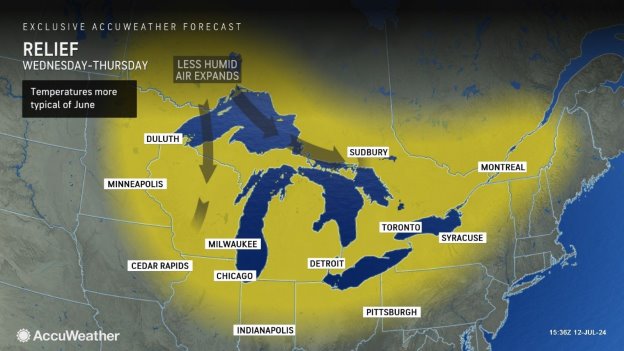
“Relief from the heat will arrive in the upper Midwest, Great Lakes, and Northeast mid to late week next week with lower humidity and more comfortable nights,” said Pastelok.
Along with cooler temperatures, AccuWeather Meteorologist Brandon Buckingham says a dip in the jet stream could send wildfire smoke from Canada over parts of the northern U.S. next week.
“There are a number of large wildfires burning in western and central Canada. The smoke from these fires will sweep into much of the Midwest and perhaps even into parts of the eastern U.S. later next week,” said Buckingham.
Record-shattering heat in the West
AccuWeather expert meteorologists say all-time record high temperatures were tied or broken at more than 50 locations in California and Nevada from July 1-5.
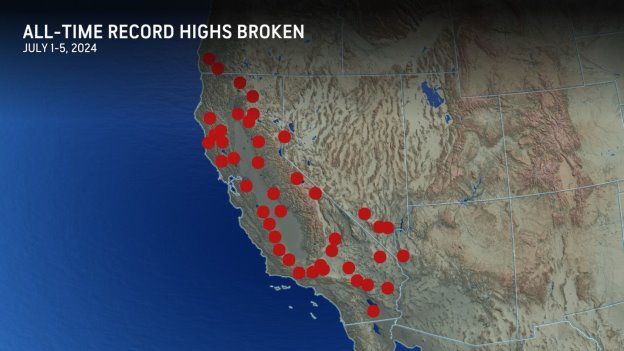
In California, all-time records were set this month when temperatures soared to 115 degrees in Palmdale, 119 degrees in Redding, and 124 degrees in Palm Springs.
The all-time record high temperature was also shattered in Las Vegas when the mercury climbed to 120 degrees on July 7.
When an all-time high-temperature record is set, it means the location has never experienced a higher temperature since recordkeeping began. Some records date back to the 1800s.
In some areas of the western United States, temperatures have surged 10-20 degrees above the historical average.
AccuWeather expert meteorologists say daily record high temperatures could be challenged this weekend in Salt Lake City and Denver.
AccuWeather Climate Expert Brett Anderson said impacts from climate change and our warming atmosphere are contributing to more intense heat waves in the U.S. and around the globe.
“Climate change is a main contributor to heat waves happening more frequently, lasting longer, and becoming more intense,” said Anderson.
This article provided by

